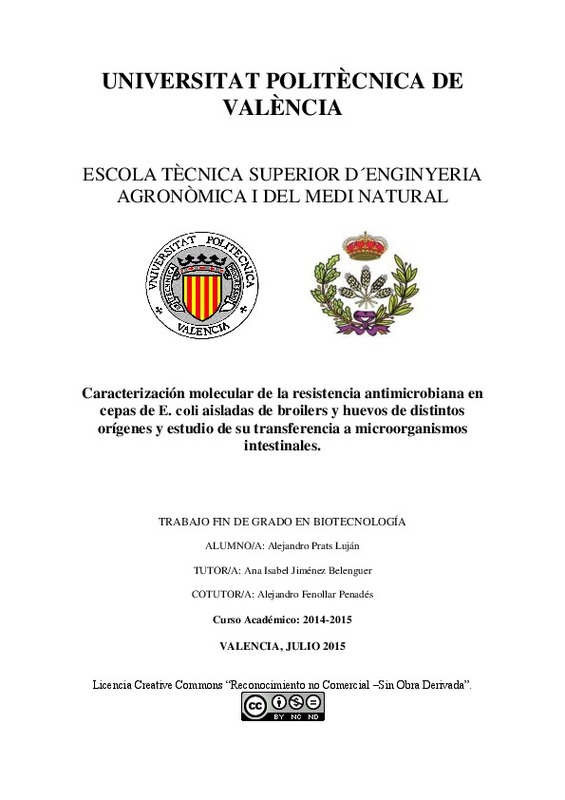JavaScript is disabled for your browser. Some features of this site may not work without it.
Buscar en RiuNet
Listar
Mi cuenta
Estadísticas
Ayuda RiuNet
Admin. UPV
Caracterización molecular de la resistencia antimicrobiana en cepas de E. coli aisladas de broilers y huevos de distintos orígenes y estudio de su transferencia a microorganismos intestinales
Mostrar el registro completo del ítem
Prats Lujan, A. (2015). Caracterización molecular de la resistencia antimicrobiana en cepas de E. coli aisladas de broilers y huevos de distintos orígenes y estudio de su transferencia a microorganismos intestinales. http://hdl.handle.net/10251/54373.
Por favor, use este identificador para citar o enlazar este ítem: http://hdl.handle.net/10251/54373
Ficheros en el ítem
Metadatos del ítem
| Título: | Caracterización molecular de la resistencia antimicrobiana en cepas de E. coli aisladas de broilers y huevos de distintos orígenes y estudio de su transferencia a microorganismos intestinales | |||
| Autor: | Prats Luján, Alejandro | |||
| Director(es): | Fenollar Penadés, Alejandro | |||
| Entidad UPV: |
|
|||
| Fecha acto/lectura: |
|
|||
| Resumen: |
[ES] El uso de antimicrobianos de amplio espectro propicia la selección de cepas multirresistentes difíciles de tratar. Las bacterias resistentes pueden estar presentes en los alimentos que se consumen y si estos no se ...[+]
[EN] The usage of extended-spectrum antimicrobials generates the selection of
multiresistant strains that are hard to treat. Resistant bacteria may be present in ingested
aliments and if these are not processed properly, ...[+]
|
|||
| Palabras clave: |
|
|||
| Derechos de uso: | Reconocimiento - No comercial - Sin obra derivada (by-nc-nd) | |||
| Editorial: |
|
|||
| Titulación: |
|
|||
| Tipo: |
|
recommendations
Este ítem aparece en la(s) siguiente(s) colección(ones)
-
ETSIAMN - Trabajos académicos [3541]
Escuela Técnica Superior de Ingeniería Agronómica y del Medio Natural







